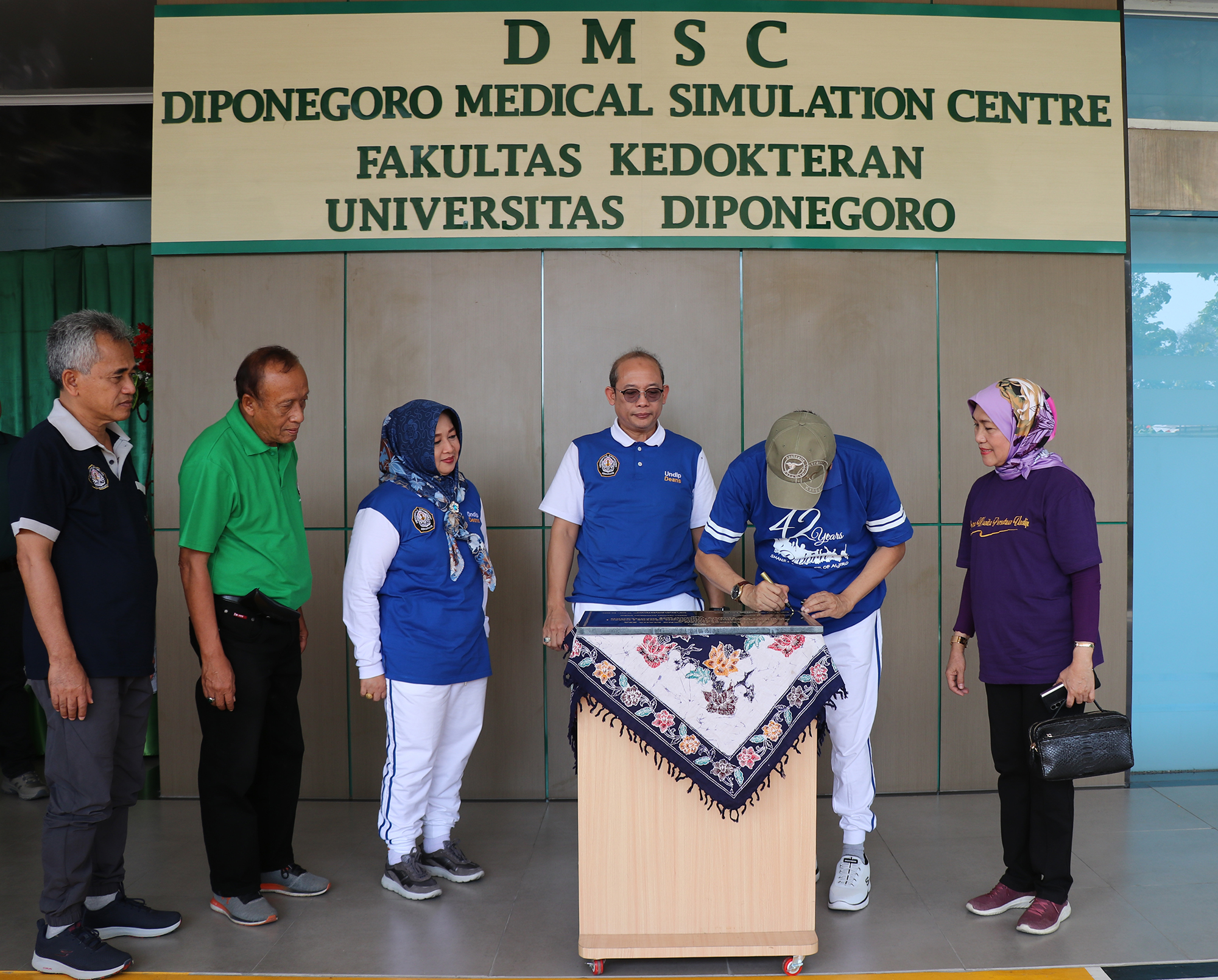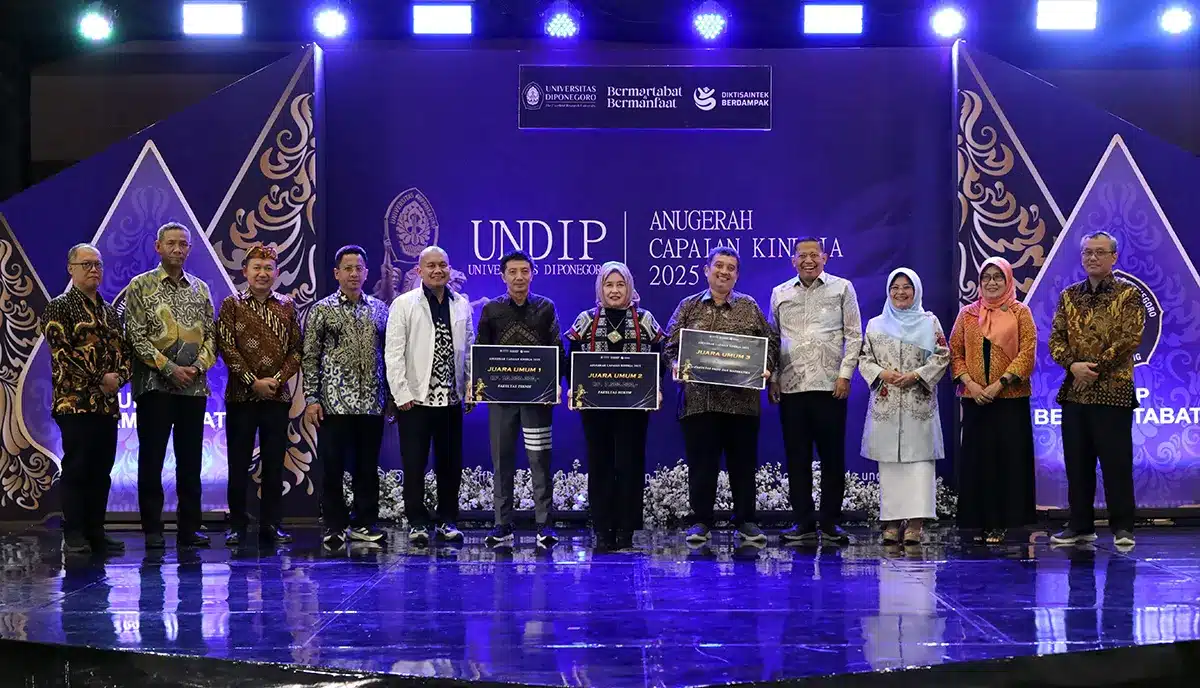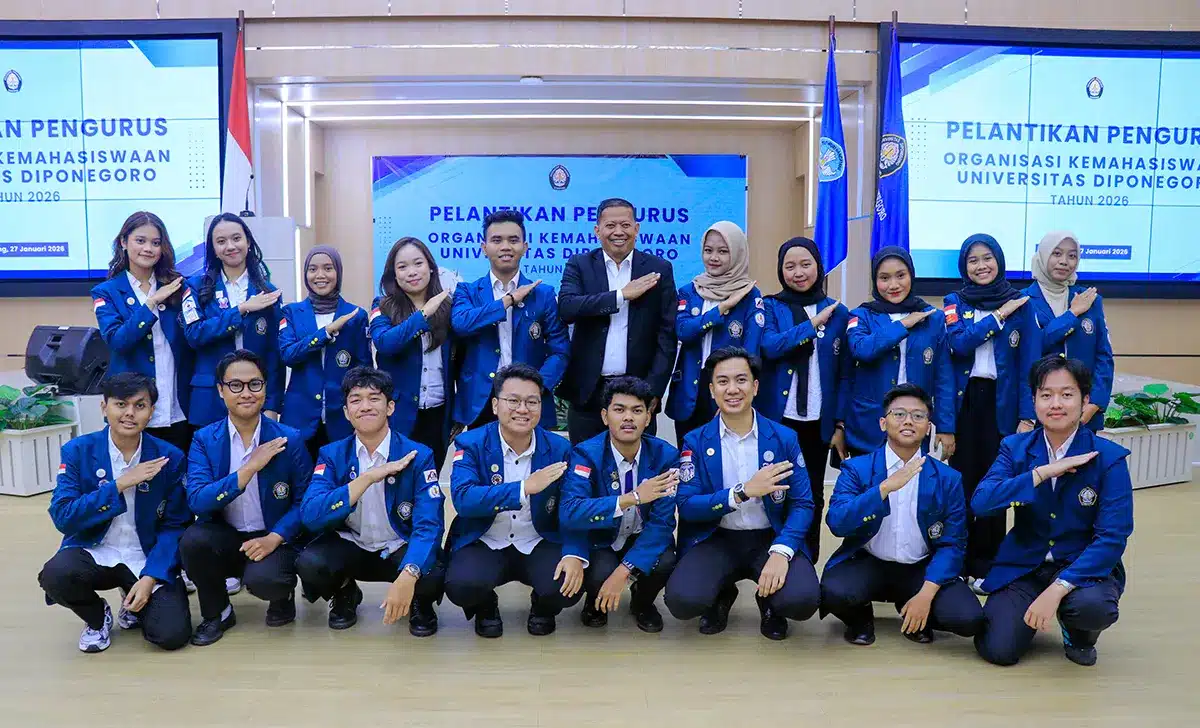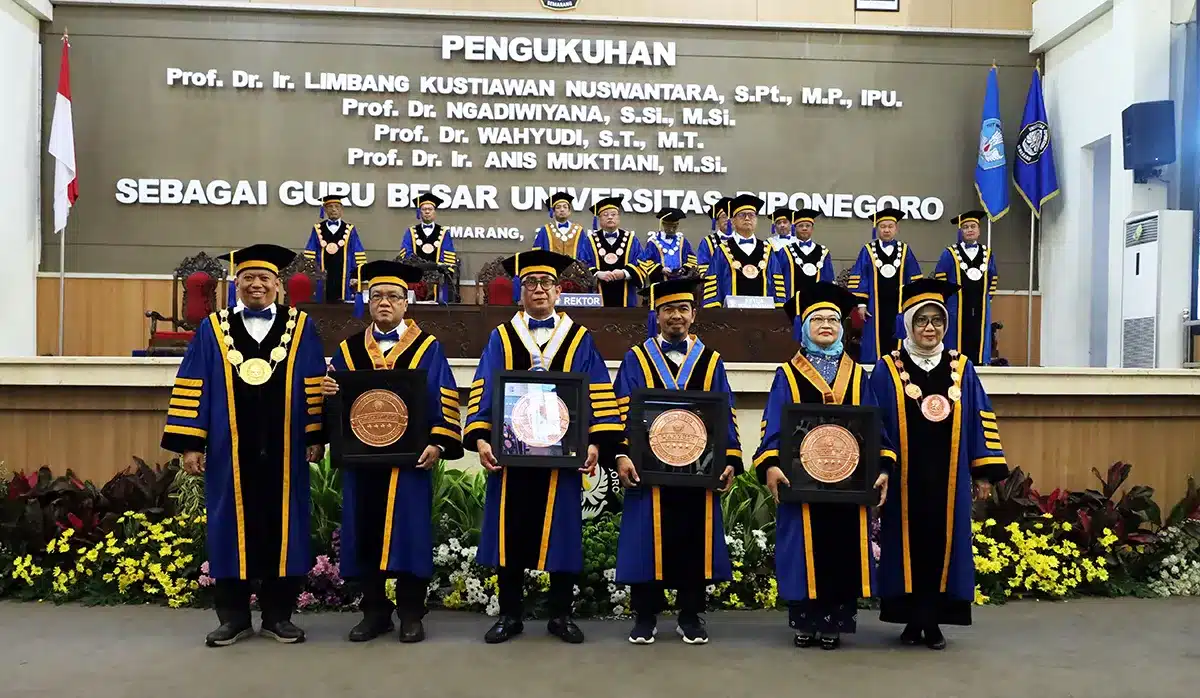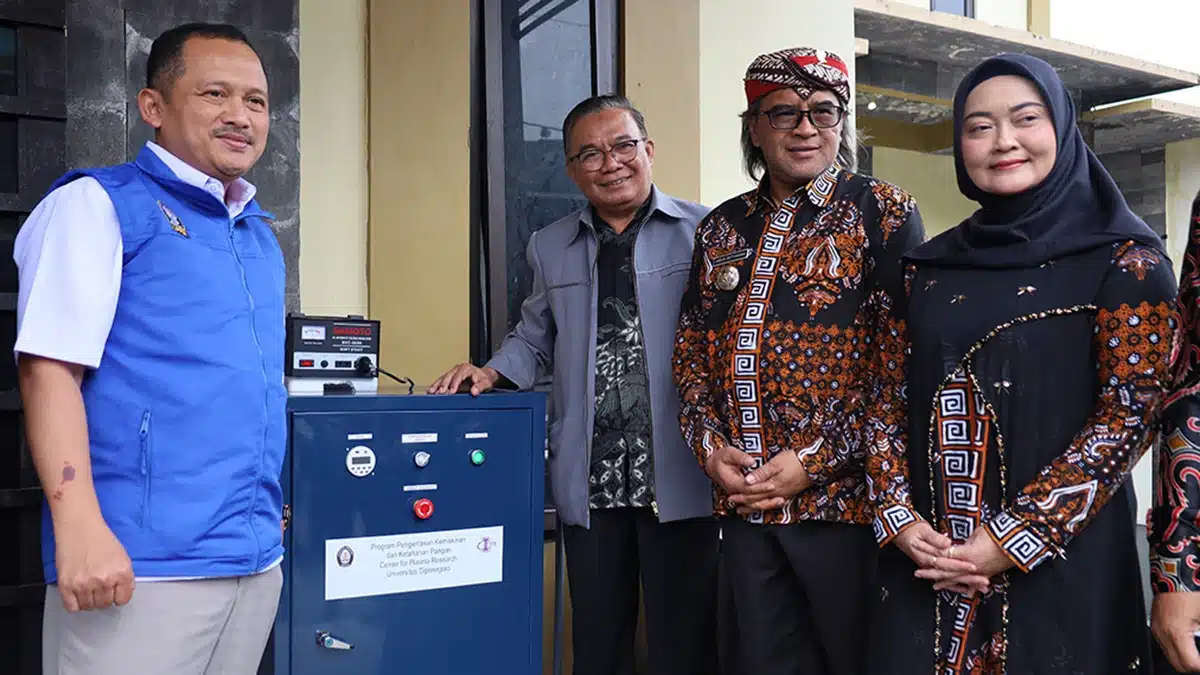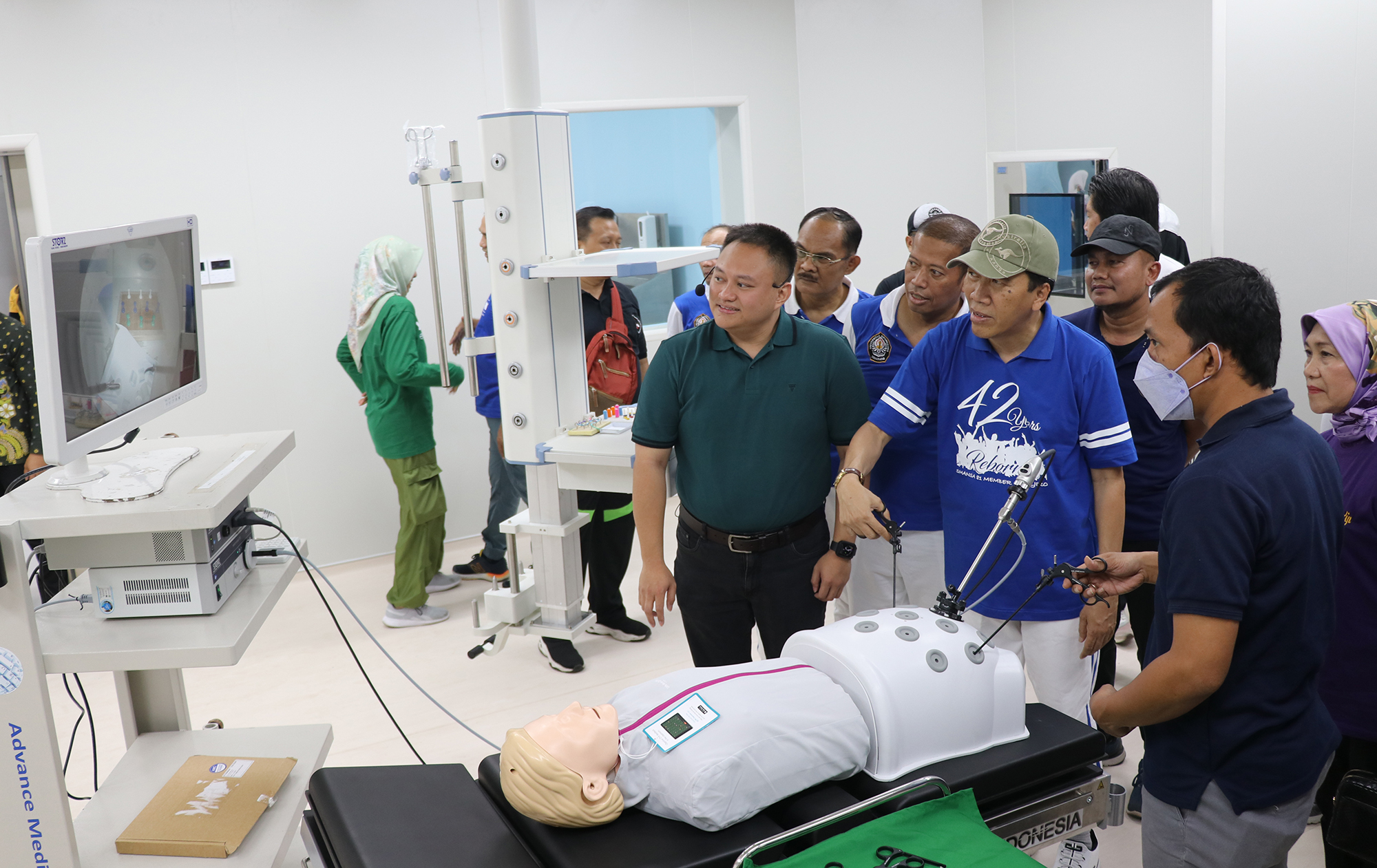Along with the times and advances in technology, especially in the health sector, Diponegoro University (Undip) continues to innovate in order to produce graduates who are ready to compete in the world of work. Undip is committed to providing adequate facilities to provide comfort to students in their learning process. This commitment was then carried out by the Faculty of Medicine Diponegoro University (FK Undip) by building a facility called the Diponegoro Medical Simulation Center (DMSC).
The inauguration event was held on Friday (13/10) at 07.30 WIB at the Central Laboratory on the 1st floor of the Faculty of Medicine Undip Tembalang. The Undip Rector, Chair of the Academic Senate, Deputy Chair of the Board of Trustees, Vice Rectors, Dean of Faculties/Schools, Director of RSND, Chair of the DWP Undip, and all leaders within Undip attended the event.
In his speech, Undip Rector Prof. Dr. Yos Johan Utama, S.H., M.Hum. said that the presence of DMSC is an added value for Undip because other universities do not necessarily have similar facilities. “We have to create a strategy that shows Undip’s strength. In managing an educational institution, we must show the distinction that Undip is the best. We can show Undip’s greatness starting from each faculty,” said Prof. Yos.
“DMSC is very strategic, expand it and equip it with the most advanced tools. Together, we strengthen this. Show that Undip is the best and different from the others. “Hopefully, the presence of DMSC will further increase the quality of education at the Faculty of Medicine Undip, which will then become a factor of superiority compared to other universities,” added Prof. Yos.
Meanwhile, the Dean of the Faculty of Medicine Undip, Prof. Dr. dr. Dwi Pudjonarko, M.Kes., Sp.S(K), in his report, explained that in medical and health education, especially in the medical field, passion for safety is the main thing and should not be ignored. Therefore, every medical personnel who will have direct contact with patients must go through a mentoring stage before finally working independently.
“In the mentoring process, at least medical personnel have gained experience or competence through simulation. Simulation can be obtained from skills carried out in skill labs where students learn simulations partially,” said Prof. Dwi Pudjonarko.
According to Prof. Dwi Pudjonarko, the presence of DMSC allows students to learn like the actual situation in a hospital. Therefore, DMSC can also be called a Mini Hospital, which means learning by means of simulations like in a hospital. “Students will learn how to treat patients, starting from the emergency room, whether minor medical procedures are needed or major surgery or microsurgery, to managing patients in the ICU. Each team’s work will be monitored on a centralized screen by the instructors, in this case senior lecturers, who will assess whether the students have met competency standards,” he added.
DMSC is a simulation center for students, especially the Faculty of Medicine Undip’s students and medical personnel. It is equipped with various facilities with the latest technology, making it possible for users to apply their knowledge as if they were actual patients. Apart from being used by students, DMSC as a simulation center in the form of a mini hospital will also be used to increase the professional competence of both general practitioners and specialist doctors.
The various advantages of DMSC include that it can be used for all medical personnel education under the auspices of the Faculty of Medicine Undip in external activities, both on a university, local, national and international scale. Then, they can carry out Basic Trauma Life Support (BTLS), Basic Cardiac Life Support (BCLS), and Basic Surgical Skills.
“DMSC can also carry out Advanced Trauma Life Support (ATLS) and Advanced Cardiac Life Support (ACLS). Here, we have a high-end multipurpose mannequin, which is a dummy with advanced technology and can be used to treat several parts or organs on one mannequin. You can also do a live surgery demo, which is a live demonstration of seeing the operation with a camera in the operating room, which can be seen in the conference room. In the future, DMSC will gradually be equipped with tools that are in line with developments in medical and health technology,” said Prof. Dwi Pudjonarko.
